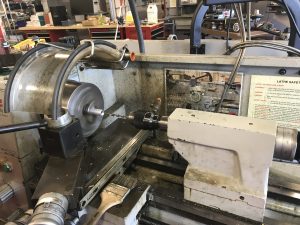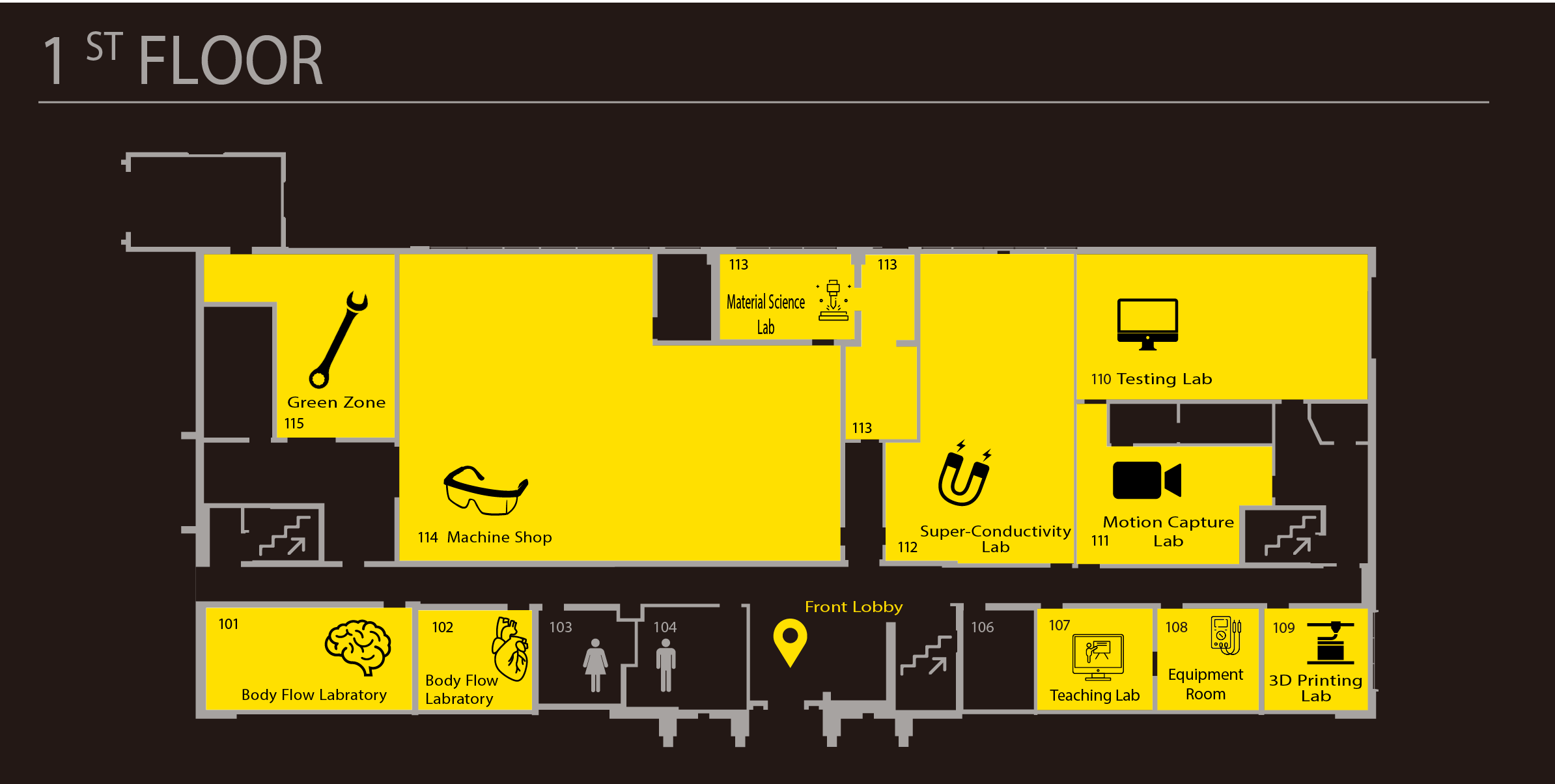LATHE
(This is a RED ZONE Machine, Proper training and authorization is Required)
ABOUT: Subtractive manufacturing. Manual operation.
The workpiece spins while a cutting tool removes material.
SETUP
- Set Appropriate Speed and Feed
- Makes sure Appropriate tool is mounted to the tool post
- Chuck up your piece
- REMOVE CHUCK KEY
SAFE OPERATION
- Press Green start button
- Turn on coolant spray
- Pull lever to begin spinning (make sure the piece is chucked true)
- Use the hand wheel to bring your tool carriage to the piece
- Makes sure you are familiar with all levers and knobs
- Make SHALLOW Passes
CLEANUP
- Vacuum up Chips
- Clean table, floor, and surrounding work area
- DO NOT LEAVE CHUCK KEY IN CHUCK
LATHE SAFETY CONTINUED
- No attempt should be made to operate the lathe until you know the proper procedures and have been checked out on its safe operation by your instructor.
- Dress Appropriately! Remove necktie, necklace, wrist watch, rings and other jewelry, and loose fitting sweaters. Wear an apron or a properly fitted shop coat. Safety glasses are a must!
- Clamp all work solidly! Use correct size tool and work holding device for the job. Get help when handling large sections of metal and heavy chucks and attachments.
- Check work frequently when it is being machined between centers. The work expands as it heats up and could damage the tailstock center.
- Be sure all guards are in place before attempting to operate the machine.
- Turn the face plate or chuck BY HAND to be sure there is NO binding or danger of the work striking any part of the lathe.
- Keep machine clear of tools!
- STOP the machine before making measurements or adjustments.
- REMEMBER–CHIPS ARE SHARP!!! Do NOT try to remove them with your hands when they become stringy and build up on the tool post. Stop the machine and remove them with pliers.
- Do NOT permit small diameter work to project too far from the chuck without support from the tailstock. Without support, the work will be tapered, or worse, spring up over the cutting tool and/or break.
- Be careful NOT to run the cutting tool into the chuck. Check any readjustment of work or tool for ample clearance when the cutter has been moved left to the farthest point that will be machined.
- STOP the machine before attempting to wipe down a machine surface.
- Before repositioning or removing work from the lathe, move the cutting tool clear of the work area. This will prevent accidental cuts from the cutter bit.
- Avoid talking to anyone while running the lathe! Do NOT permit anyone to “fool around” with the machine while you operate it. You are the only one who should turn the machine on or off, or make any adjustments to the lathe.
- If the lathe has a threaded spindle nose, never attempt to run the chuck on or off the spindle using power. It is also dangerous practice to stop a lathe by reversing the direction of rotation. The chuck could spin off and cause serious injury to you. There is also the danger of damaging the machine.
- You should always be aware of the direction of travel and speed of the carriage before engaging the half-nuts or automatic feed.
- ALWAYS remove key from the chuck. Make it a habit NEVER to let go of the key in until it is out of the chuck and clear of the work area.
- Tools must NOT be placed on the lathe ways. Use a tool board or place them on the lathe tray.
- When Filing on the lathe, be sure the file has a securely fitting handle.
- STOP the machine immediately if some off sounding noise or vibration develops during operation. If you cannot locate the trouble, get help from your instructor. Under no condition should the machine be operated until the trouble has been corrected.
- Remove sharp edges and burrs from work before removing it from the machine.
- Plan your work thoroughly before starting. Have all needed tools on hand.
- Use care when cleaning the lathe. Chips sometimes stick in recesses. Remove them with a brush or short stick, NEVER clean a machine tool with compressed air.


